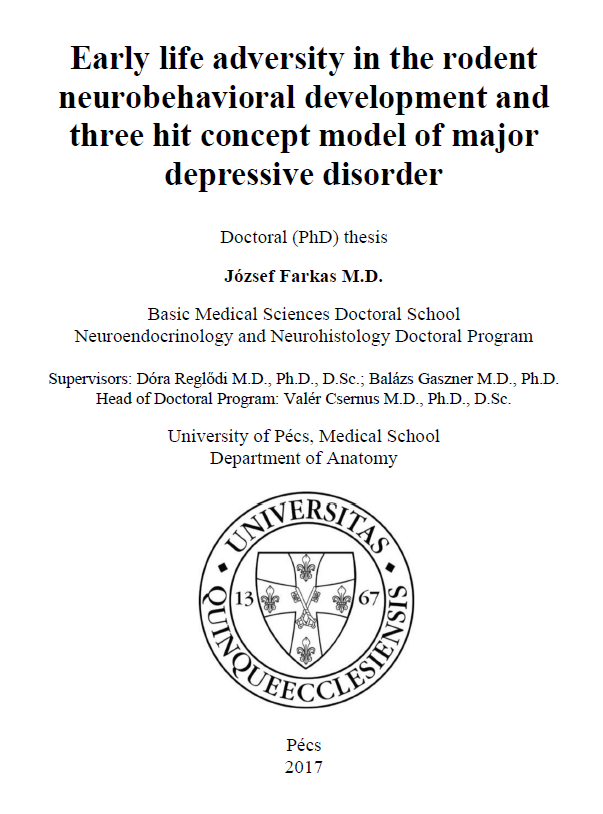Early Life Adversity in the Rodent Neurobehavioral Development and Three Hit Concept Model of Major Depressive Disorder
Abstract
Depression is a major burden on the affected person, on the immediate and extended family and the society as well. The great weight caused by the disease can be detected on families, on the extended society and more measurably on the economy.
The majority of human beings go through depressive episodes during their lifespans. Often depression is characterized as a “trending” disease of the high society of Western cultures. However, many recently published studies prove the opposite, depression affects people independently from the socioeconomic status all around the globe. Patients are unable or limited at best to function as a member of family, society and to provide for themselves. Depressive episodes often result in the death (not rarely due to suicidal activity) of the affected person. Societies are trying to cope with the results of depression to the best of their abilities.
One would expect that a disease with such a high impact on human life is well understood and researched to the point where it can be cured or at least treated effectively. Unfortunately, today this is not the case. Clinical psychiatry uses a pharmacological therapeutical approach which was developed decades ago and was found to be effective at only a fraction of the patients. Neuroscience is unable to present the complete pathomechanism of the disease at the moment. Moreover, it is unclear what the causes in the background are.
Present days neuroscientists are making discoveries that support the idea that depression is a multifactorial disease. Many people are prone to develop the disease but only under the “right” circumstances. It is imperative to discover all the factors behind depression in order to identify “attack points” where therapies may interrupt the development or reverse the process of the disease.

